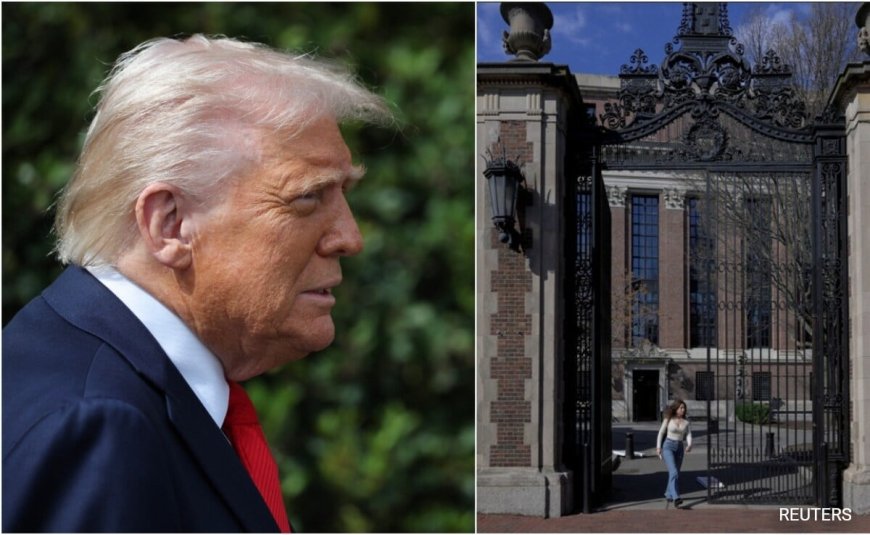"Illegal Government Overreach": Harvard Reacts To Federal Grants Ban
The Trump administration has locked horns with Harvard, threatening budgets, tax-exempt status and enrollment of foreign students.

"Illegal Government Overreach": Harvard Reacts To Federal Grants Ban
In recent developments, Harvard University officials have openly criticized the federal government's decision to impose a ban on federal grants, labeling it as "illegal government overreach." This ban has sparked significant controversy, and the implications for educational institutions across the nation are profound. As the situation unfolds, many are left wondering how this will affect the landscape of higher education and research funding.
Understanding the Context of the Federal Grants Ban
The federal government's announcement to discontinue certain federal grants has raised alarms among academic institutions, with Harvard University expressing strong discontent. These federal grants play an essential role in funding various programs and research initiatives that contribute to the academic environment. In this context, Harvard's reaction emphasizes the potential detrimental effects on academic freedom and innovation.
Harvard's Response to the Ban
Harvard officials have stated that the federal grants ban represents a significant departure from established norms of funding for education and research. The fear is that this move could stifle scholarly progress, limit educational opportunities, and negatively impact students and faculty alike. Ivy League institutions like Harvard pride themselves on their commitment to advancing knowledge, and such government actions can be seen as an infringement on their autonomy.
The Broader Implications for Higher Education
Harvard's criticism of federal grant restrictions is not occurring in isolation. The academic world is closely watching how this situation evolves. As universities across the country join Harvard in calling for a reversal of this decision, it raises questions about the future of federal funding for higher education. Will other institutions follow suit, or will they remain silent in the face of government overreach?
Potential Consequences for Research and Innovation
The implications of reduced federal grants extend beyond funding; they can also result in diminished research capabilities. Many breakthrough discoveries rely heavily on federal funding avenues. If these grants are curtailed, researchers may be hindered in their work, impacting not only their careers but also advancements in various fields including science, medicine, and technology.
As universities weigh their options, the dialogue around "illegal government overreach" is likely to intensify, with Harvard leading the charge. This debate is critical not only for current students and faculty but also for future generations of scholars. The preservation of independence in academia may hang in the balance as institutions navigate these politically charged waters.
Conclusion
As the debate continues, Harvard and other universities are expected to advocate against restrictive measures that threaten the integrity of educational funding and research. The federal grants ban could reshape the funding landscape for years to come, making it imperative for educators and researchers to participate actively in this conversation.
For further updates on this evolving story, visit dharmyuddh.com. Keywords: Harvard reaction federal grants ban, illegal government overreach education, impact on research funding, academic freedom federal grants, higher education funding controversy, universities response grants ban, implications for research and innovation, federal funding for education reform.







